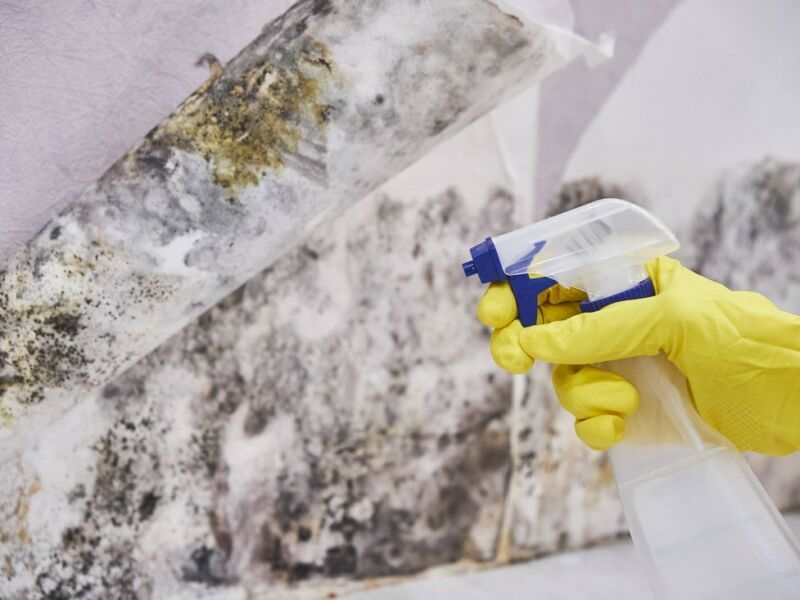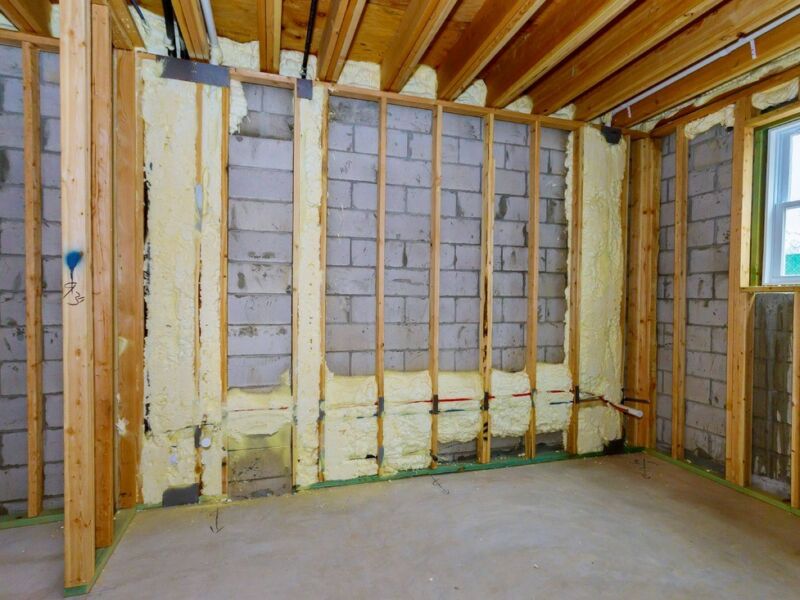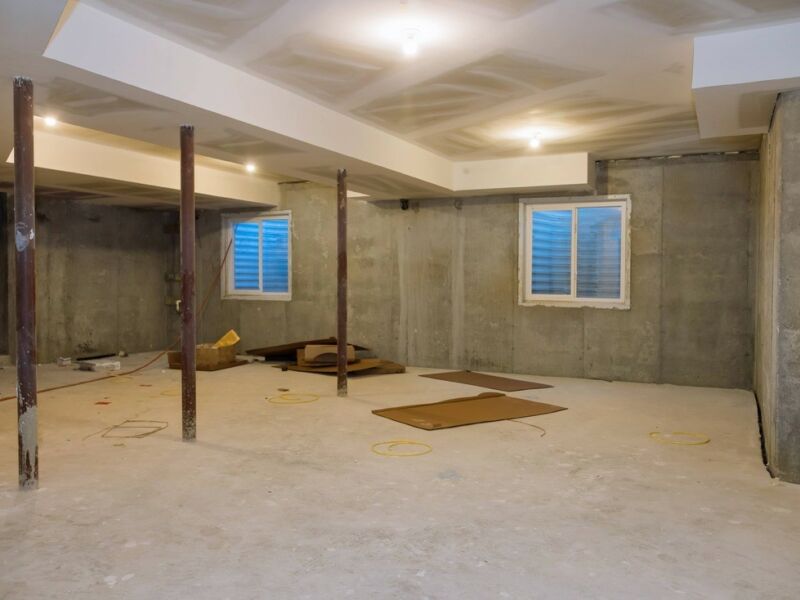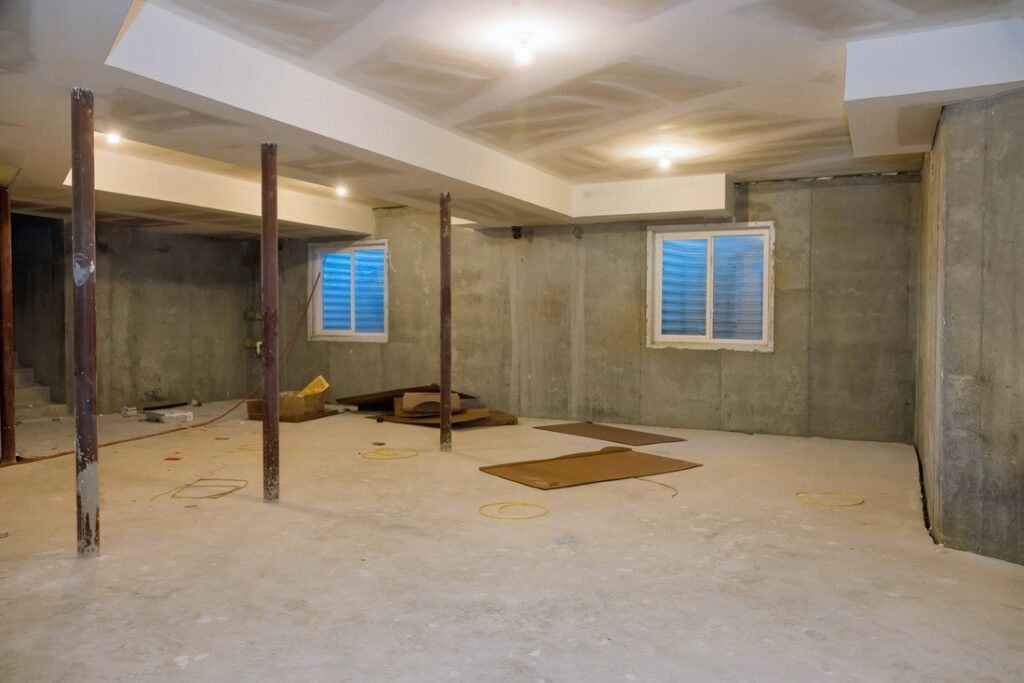
Introduction
Choosing the right flooring for a basement can be a crucial decision, especially if the area is prone to flooding. In flood-prone basements, it is important to select materials that can withstand water exposure and minimize potential damage. This article will explore various flooring options, their benefits, and how to effectively mitigate water damage in a flood-prone basement.
Factors to Consider
When choosing flooring for a flood-prone basement, there are several factors to consider:
Budget
First and foremost, determine your budget for basement flooring. Different flooring materials vary in cost, so it is essential to choose an option that fits within your budget.

Water Resistance
Prioritize water-resistant or waterproof flooring options. These materials are designed to withstand water exposure and minimize damage.
Durability
Basements can be high-traffic areas, so it’s important to choose flooring that is durable and can withstand regular use without showing signs of wear and tear.
Installation
Consider the ease of installation for each flooring option. Some materials may require professional installation, while others may be suitable for DIY projects.
Aesthetics
Take into account the overall aesthetic appeal of the flooring material. Consider the style and design that will complement your basement’s decor.
Flooring Options
There are several flooring options available for flood-prone basements. Each option has its own set of benefits and considerations:

Epoxy Flooring
Epoxy flooring is a popular choice for flood-prone basements due to its excellent water resistance and durability. It creates a seamless and smooth surface that is resistant to water, chemicals, and stains. Epoxy flooring is also easy to clean and maintain, making it an ideal choice for basements that may experience frequent flooding.
Vinyl Flooring
Vinyl flooring is another excellent option for flood-prone basements. It is resistant to water and moisture, making it highly suitable for areas prone to flooding. Vinyl flooring is available in various styles and designs, allowing you to choose a look that suits your basement’s aesthetic.
Ceramic or Porcelain Tile
Ceramic or porcelain tile is a durable and water-resistant option for basement flooring. These tiles are easy to clean, moisture-resistant, and can withstand high levels of foot traffic. Additionally, ceramic and porcelain tiles are available in a wide range of styles, colors, and patterns, offering versatility in design options.
Concrete Flooring
Concrete flooring is a practical and cost-effective option for flood-prone basements. Concrete is naturally water-resistant and can withstand moisture without warping or deteriorating. It provides a solid base that can be left as is or covered with other flooring options such as epoxy or carpet.
Luxury Vinyl Plank
Luxury vinyl plank (LVP) is a popular choice for basements due to its water-resistant properties and realistic wood-like appearance. LVP is durable, easy to clean, and can mimic the look of hardwood flooring without the risk of water damage. It is an excellent choice for homeowners who desire the aesthetic appeal of wood flooring in their basement.
Mitigating Water Damage
While selecting the right flooring material is important, it is equally crucial to take measures to mitigate water damage in a flood-prone basement. Here are some tips to help protect your basement:
Install a Sump Pump
A sump pump is a device that helps remove excess water from the basement. It automatically activates when water levels rise, preventing flooding and potential water damage. Consider installing a sump pump to effectively remove water and keep your basement dry.
Improve Drainage Systems
Ensure that your basement has proper drainage systems in place. Clear and maintain gutters, downspouts, and extensions to direct water away from the foundation and basement. Proper grading around the exterior of your home can also help prevent water from pooling around the foundation.
Seal Cracks and Gaps
Inspect the basement for any cracks or gaps where water may enter. Use hydraulic cement or other appropriate sealants to fill these openings and prevent water infiltration.
Consider Water-Resistant Insulation
Choose water-resistant insulation materials for the walls and ceiling of your basement. This can help mitigate water damage and prevent the growth of mold or mildew.
Regularly Check for Leaks
Regularly inspect your basement for leaks or signs of water intrusion. Address any issues promptly to prevent further damage.
Conclusion
Choosing the right flooring for a flood-prone basement is crucial to minimize potential water damage. Epoxy flooring, vinyl flooring, ceramic or porcelain tile, concrete flooring, and luxury vinyl plank are all excellent options to consider. Additionally, implementing measures such as installing a sump pump, improving drainage systems, sealing cracks, and regularly checking for leaks can help mitigate water damage and ensure the longevity of your basement flooring.
What are the best flooring options for a flood-prone basement?
How can I protect my basement from water damage?
Remember, when dealing with flood-prone basements, it is essential to choose flooring materials that can withstand water exposure and take proactive measures to prevent water damage. Service Water Restoration Pros is a professional water damage restoration company offering services for flooded basement cleanup, water damage repair, and basement water restoration. Contact us at 949-209-1582 or visit our website for more information: Service Water Restoration Pros.



